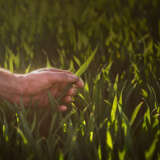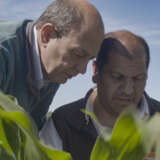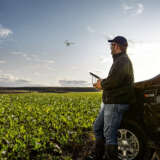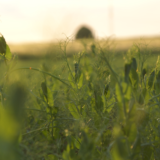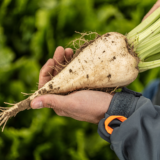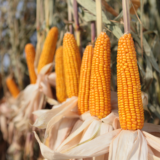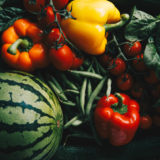
Strategic planning
A look into the
year 2031
Tradition, willingness to change, foresight and courage: Those are the forces that will secure KWS' future. Strategic Planning has identified eight trends that will shape the upcoming years.

Telse Sieg
For the success of KWS as a family-run plant breeding company with a 165-year history, strategic and future-oriented thinking is of central importance. Establishing long-term and clearly formulated goals is the only way to carefully design planning processes and ensure the company's future viability.
In doing so, KWS operates in the field of friction, with long-standing tradition and reliable consistency, but on the other hand with courageous willingness to innovate and change. "KWS is always reinventing itself," says agricultural engineer, Telse Sieg from Strategic Planning. "I appreciate that foresight, that forward-looking approach, that little bit of well-calculated and thought-out risk-taking," emphasizes the 42-year-old, who has been with KWS for 16 years.
An important starting point for the current strategic planning is an internal survey with KWS experts on the relevant future topics in agriculture. Eight key trends were identified and subsequently analyzed. These are regularly reviewed by the Strategic Planning Team to find out whether KWS is on the right course or whether adjustments need to be made and new emphases set.
◼Eight trends in agriculture
© KWS SAAT SE & Co. KGaA 2025




